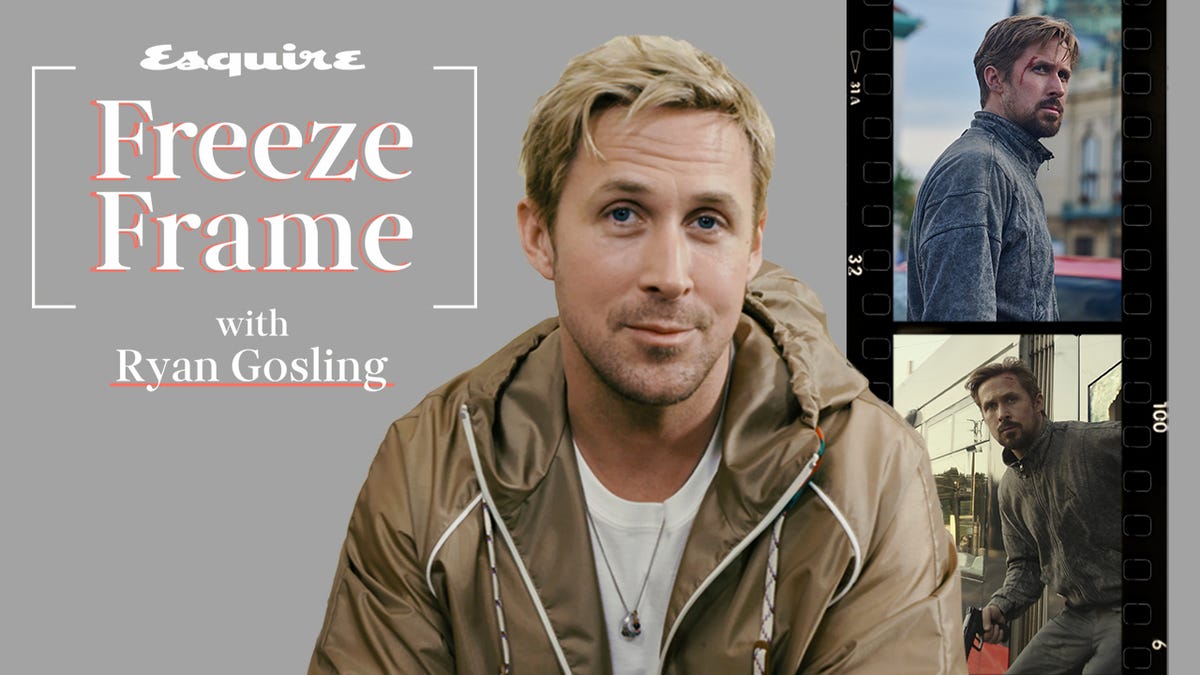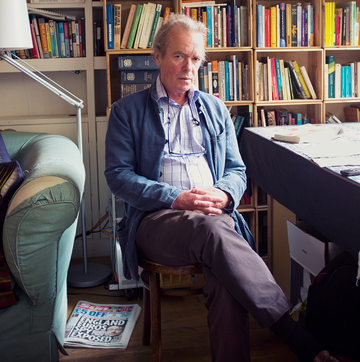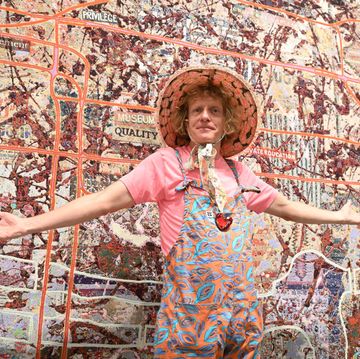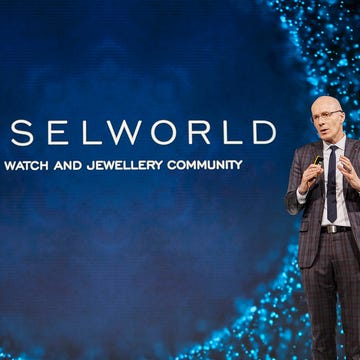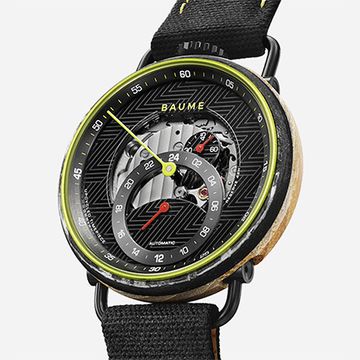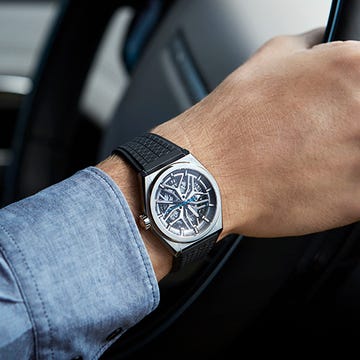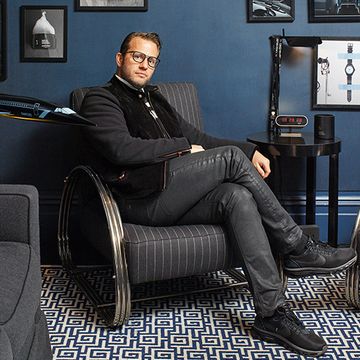My dad was a credit draper, which doesn't exist anymore. He used to sell to people in their homes, things like sheets, bed linen, curtains, some clothes. It started straight after the war. He was an insurance man, door to door, and then he had the idea of maybe selling some clothes, or pillows, or anything. He had what he called "a round". That meant that they were a group of people, and they paid him so much a week.
I wanted to be a racing cyclist. My dad bought me a racing bike, and I rode competitively from the age of 12 until I was 18. One day, looking extremely gorgeous on the bike, wearing some Buddy Holly glasses with a big, thick rim, I crashed into a car, because I couldn't see where I was going. I ended up in hospital for three months.
The Brits have always been so brilliant at self-expression through non-violence. The punks, the New Romantics, the goths, the Mods, hippies. In France, they were burning cars. In England it was more like, "How would these curtains look on me?"
The first little collection, I think it was two shirts, two pairs of pants, two jackets, two pieces of knitwear, and one suit.
When I started, the whole idea about being a designer is that you have an idea in your head and your heart, and you hoped somebody liked it. Now it's all about, "Prada are doing this, Gucci are doing that." And everyone's nervous. And it used to be just about: this is what I do.
I got my first camera when I was 11. You were taught to look and see. Now you use a phone: delete, delete, delete, delete. But back then, when you look through a viewfinder, you have to get your picture lined up really well because you only have 24 exposures, or 36, and they're very costly to print. So it's very much about looking and learning to see.
I remember walking down Byard Lanein Nottingham one day and a lovely old ex-soldier quite rightly said, "You look like a bloody girl!" I said, "You're right, sir. Sorry." And tottered off in my high heels.
A lot of fashion is about having a carrier bag that has a particular branding on it, something that says "I am rich", or "I am fashionable", or "I am part of this club". In my opinion, that's linked to insecurity.
It's a difficult word, isn't it, "style"?
One night at a party I met this girl who was very nice. She turned out to be a married lady with two dogs, two cats and two kids, which was slightly confusing, and I was 21 and she was 27, and she lived in London and I lived in Nottingham with my mum and dad. But we fell in love. Suddenly I had an instant family. And that was Pauline. It was 1967. I didn't marry her until the year 2000. I wasn't sure. It takes a while, you know?
It's about learning to give and take, learning to be interested, and interesting, learning to not just talk about yourself, listening to how their day has been, as well as your day. It's just keeping your feet on the ground. Do the washing up. Wipe the tops. I love that. It's so therapeutic.
Don't you think we overuse words, in commerce, now? You know: Limited edition. Vintage. Luxury. Loo rolls have "luxury" written on them… As long as it's not "vintage", I suppose.
There's a man called Carlo Scarpa, an architect from Italy. He passed away many years ago. One of his specialities was modernising an existing old building. He'd take a beautiful old villa in Treviso, say, and put a bronze and steel shelf onto a wall that's been there for 200 years. I like that a lot.
I don't like confrontation clothes. I like clothes you feel comfortable in.
The first time I went to Japan, in 1982, I was on a train going from Kanazawa to Osaka and I walked the whole length of the train, and there was no other foreign person on there at all. Every time the electric doors opened, all the kids were pointing. I'm quite tall. You'd stay in a hotel where your feet are hanging off the end of the bed, because in those days they didn't have beds for western people. Washing your hands was difficult because the basin was very low. Other things were low, as well. Now I've got my own office there. I think it's 200-and-something shops. I've never counted, but it's a lot.
Do you know about the person that's been sending me things for over 40 years? A completely unknown person. A chair, a robot, a ski, a stepladder. But they never arrive in a box. They come with the address written directly onto them, and the stamps stuck on. The postman arrived the other day with an Austrian cowbell around his neck.
I've got a Mini. That's fine for me. There's no private jet. Where would I park it?
Where a lot of designers get it horribly wrong is they do things just to get attention from the press. That does a huge disservice to our industry, and it doesn't do any good for themselves most of the time, because people just think it's silly.
I could go round the world 50 times on air miles. My secretary told me the other day.
One of the joys of a bespoke suit is the little gathers you get on the shoulders, which is such a nice symbol that it's made by hand. It will be imperfection because one thread will be pulled slightly harder than the other, and that's joyful. It's lovely.
Pauline doesn't have a phone, and we don't have an answer machine, and we have no computer. I'm not saying it's a good thing or a bad thing, we just don't.
If you want to be in business for a long time, you can't be snobby or stuck in the mud. You have to just flow with the river. So many people get formulaic. They're so proud that they won't change: "I do it this way." No, you don't. You did do it that way, but now you need to do it this way.
I've been here a long time. We've never gone like a rocket. Never borrowed money. We've always done it very gently and very carefully. And slowly, slowly, you build it up.
My dad died when he was 94, and he wore a tie every day of his whole life. He wasn't fashionable, but he was very, very smart.

